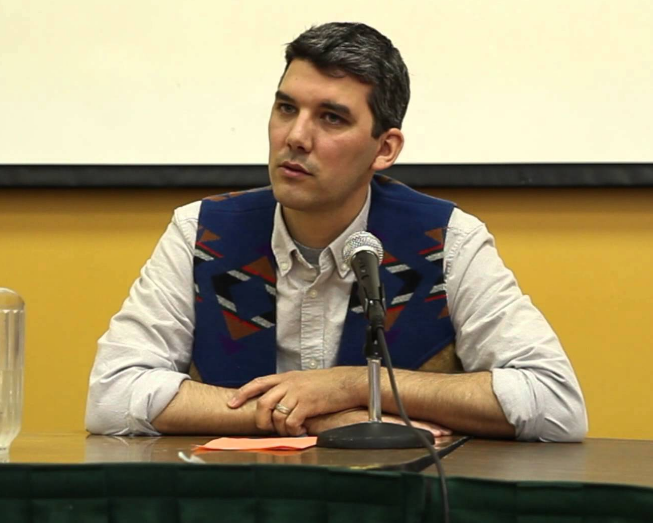Your Online Friendship Centre
Exit Site
Your Online Friendship Centre
Journalism has the ability to change hearts and minds for the better.
Journalists themselves can change history, shed light on societal problems and have an impact on politics and a country’s decision makers. What journalists write and say can be crucial to the way citizens understand society.
It’s hard to deny, though, that media isn’t without faults and that it may not represent some communities accurately.
Canadian media has been trapped in a colonial vacuum for ages. But many in the media world are finally waking up to the need to think twice and think very specifically about how Indigenous people are represented on TV, in newspapers and on online news websites.
One of the Truth and Reconciliation Commission’s 94 calls to action proposes that journalism and media schools in Canada require education for all students on the history of Aboriginal peoples. This education should include the “history and legacy of residential schools, the United Nations Declaration on the Rights of Indigenous Peoples, Treaties and Aboriginal rights, Indigenous law, and Aboriginal–Crown relations.”
Carleton University in Ottawa is making some efforts to engage journalism students with reconciliation.
Hayden King is a well-known academic focusing on Canadian history, Indigenous politics and international relations. He is Pottawatomi and Ojibwe from Beausoleil First Nation on Gchimnissing in Huronia, Ontario and he’ll be teaching a new elective for fourth year students on Indigenous issues in Carleton’s journalism program in 2017.

“There are a handful of common stereotypes that range from corrupt Chiefs to militant savages,” King said. “But I think the misrepresentation transcends crude characterization and is often about how reporters frame Indigenous issues relative to Canadians and Canada. We are often cast as pitiable burdens when social challenges are reported on or primitive stuck in time hunter gatherers when a blockade goes up.”
King said the course will be history-heavy, and look at the emergence of Canada and the “contours of our collective relationship.” It will also offer a chance to critically reflect on contemporary misrepresentations on Indigenous people in the media as well as a best practice guide on covering Indigenous issues.
Carleton isn’t the only school to be offering this kind of course for young journalists.
Duncan McCue, a reporter for CBC News, teaches a graduate level Reporting in Indigenous Communities course at the University of British Columbia. McCue is Anishinaabe and a member of the Chippewas of Georgina Island First Nation in southern Ontario. In 2011, he was awarded a Knight Fellowship at Stanford University where he created a guide for journalists reporting Indigenous issues.
Further, Ryerson University in Toronto is currently looking at updating its journalism curriculum to include more information about covering Indigenous people and Indigenous issues in Canada.
“For me reconciliation is, in part, about the transformation of Canadian society,” King said. “Journalists play such a key role in shaping our daily conversations, policy decisions, even our understanding of ourselves.”
That’s why it’s so important they’re equipped with the tools and knowledge they need to appropriately and correctly cover the varying lives and experiences, challenges and successes, of First Nations, Métis and Inuit people.
“If we can train journalists how to accurately and fairly cover stories about Indigenous issues, that might have an impact in changing the tone and content of those conversations around politics and identity,” King added.
“Journalists can help change the way Canadians think and act in the world.”